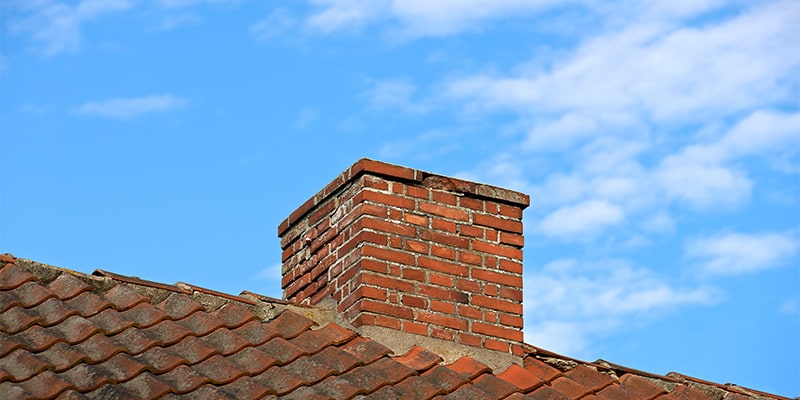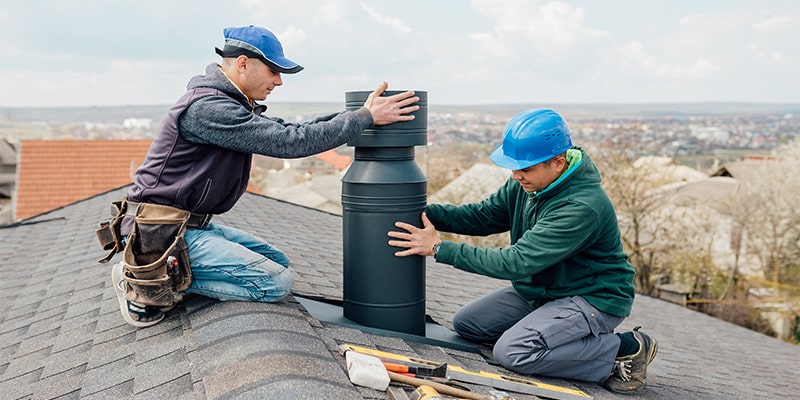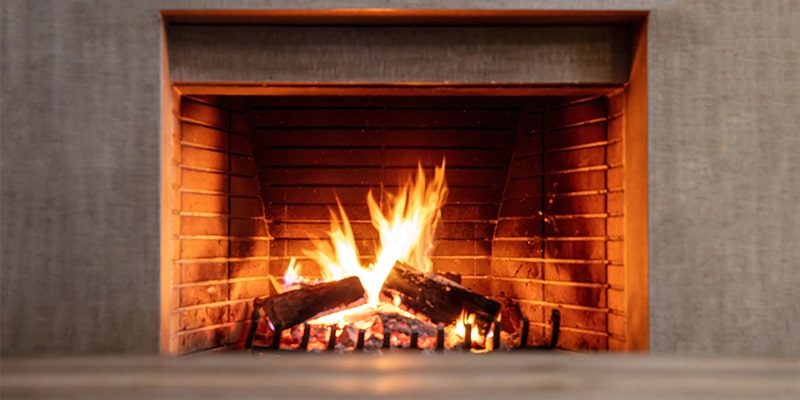How Much is My Chimney Costing Me?

Chimneys used to be extremely important. Long ago, they were one of the only ways a home could be safely heated, with a lit fire in the fireplace warming the home while sending the toxic smoke up the chimney and into the air outside.
However, times have changed, and so have the ways that we warm our houses. Gone are the days of the roaring fire for most households. Instead, people tend to rely on radiators, boilers, and electric or gas fires. This has led some people to consider getting rid of their chimneys altogether.
But why exactly is this? As this post will show you, you may actually be losing out by owning a chimney instead of sealing it in or removing it altogether. Chimneys can be quite pricey additions to a home nowadays, generating little in return besides some visual appeal. Let’s have a look at just what makes owning a chimney a potential drain on finances, and how best to avoid potential costs.
Contents
- How Much is Energy is My Chimney Costing Me?
- How Much Does My Chimney Cost to Repair?
- How Much Does My Chimney Cost to Replace?
- Should I Seal My Chimney?
- How Much Does My Chimney Cost to Maintain?
- Does Using My Chimney Make up the Cost?
How Much is Energy is My Chimney Costing Me?
When looking at chimneys – or indeed the heating of your home in general - it is important to understand that all heat, no matter where it comes from, rises. A lot of heat is lost through ceilings. This is why, during heatwaves, your bedroom or loft will feel much more like a sauana than your living room or kitchen.
The situation is even worse when it comes to chimneys. Most lofts are insulated, with the insulation in question helping to conserve heat within your home. Even if it gets past the insulation, it may still be trapped by the roof itself. A chimney has none of these defences – the heat can just travel straight up it and out into the open air.
According to certain studies, you can lose up to 20% of heat through a chimney.
How Much Does My Chimney Cost to Repair?

The answer to this question very much depends on the repair. Chimney repairs can be required both inside and out, with eroded brickwork, a damaged interior shaft, and fallen chimney caps just some of the more common issues.
For smaller jobs like replacing chimney caps, you may only be looking at approx. £90, however for more extensive work including re-pointing and leadwork you could see the price rise anywhere between £300 to over £2000 depending on the size of your chimney.
Your best bet is to ring up a professional and tell them your issue, and they will likely provide a quote. Alternatively – especially if you are unsure of the issue – call them over and ask them to diagnose the problem before offering their advice on how best to proceed.
How Much Does My Chimney Cost to Replace?
In severe cases of disrepair, a chimney may need replacing altogether. Assuming that it is a full replacement job that needs doing (as opposed to the various forms of individual repairs outlined above) you can safely assume that a full chimney replacement may end up costing you as much as a brand-new chimney.
And how much is this? Anywhere between £1500 and £5000, depending on accessibility and size as well as the make and model of your new chimney. Finally, unless you are a professional yourself, you will likely need assistance from an expert, which means you’ll have to factor in labour costs which could be in excess of £300.
This means that even a lower-priced chimney is going to set you back a considerable amount. If you don't believe you'll use the chimney enough to justify this cost you want to consider sealing it instead.
Should I Seal My Chimney?
Many people never use their chimneys. If this is true in your case, it's probably worth looking at sealing it up. Especially if you are often experiencing draughts and falling debris through them.
However, even those that only use their chimneys a couple of times a year (Christmas is always a popular holiday for chimney use) may not want to resort to removing the ability to do so altogether. There are a few steps you can take to reduce the effect a chimney can have on the heat in your home, including a chimney top damper, or a fireplace insert. These can be installed by experts relatively quickly if your fireplace is compatible.
How Much Does My Chimney Cost to Maintain?
Besides damage and replacement, even maintaining a chimney can prove to be quite a costly endeavour. Soot in particular is one of the biggest issues and you’ll require a chimney sweeping brush to effectively clean it out and avoid any blockages that may cause serious hazards if left unchecked.
Even if you don’t use the chimney very often it will require cleaning at least a couple of times a year to keep on top of fallen debris as the brickwork around the chimney ages and weather conditions erode the material.
Nesting birds can also play havoc with your chimney. Dropping twigs and even falling down the shaft and into your home. This a problem that can often only be solved with a chimney cap, costing around £50 - £150.
A professional chimney sweep is another alternative. While by no means cheaper, this will help avoid any negative knock-on effects that may arise if the chimney is not cleaned correctly or thoroughly enough.
The average cost of a chimney sweep is between £50 and £80 per job.
Does Using My Chimney Make up the Cost?

You may think that using the chimney may make up for the heavy costs. After all, if it’s cheaper to warm your home than utilising a radiator or electric fire, surely it is worth buying firewood every now and again.
Well, this may not be entirely accurate. Not only is wood, like many raw materials, experiencing an uptick in costs during the cost-of-living unease, but a traditional fireplace is one of the least efficient ways to heat the home. In fact, between 80% and 90% of heat is lost in the fireplace. Where does it go? Up the chimney itself.
One of the alternatives to traditional fireplaces is more modern models of wood and log burners. These are much more efficient at converting your wood to heart and are specifically designed to avoid losing heat up the chimney. They can also utilise an existing fireplace and chimney, converting them both into more effective heat-creating components.
It can't be argued that chimneys don’t drain your finances, especially if they are never used. Even those that aren’t functional but are still open will require regular maintenance and repairs. Wood Burners can help to make your chimney a tad more efficient however they may not always be compatible.
Add to this the environmental concerns and initial installation costs and you may well find this to be a solution far more costly than it is practical.
For more questions on chimneys – whether it be related to maintenance, operation, repair, or installation – do not hesitate to get in touch with our award-winning customer service team. Either by phone at 01295 565 565 or by using our handy live chat below.